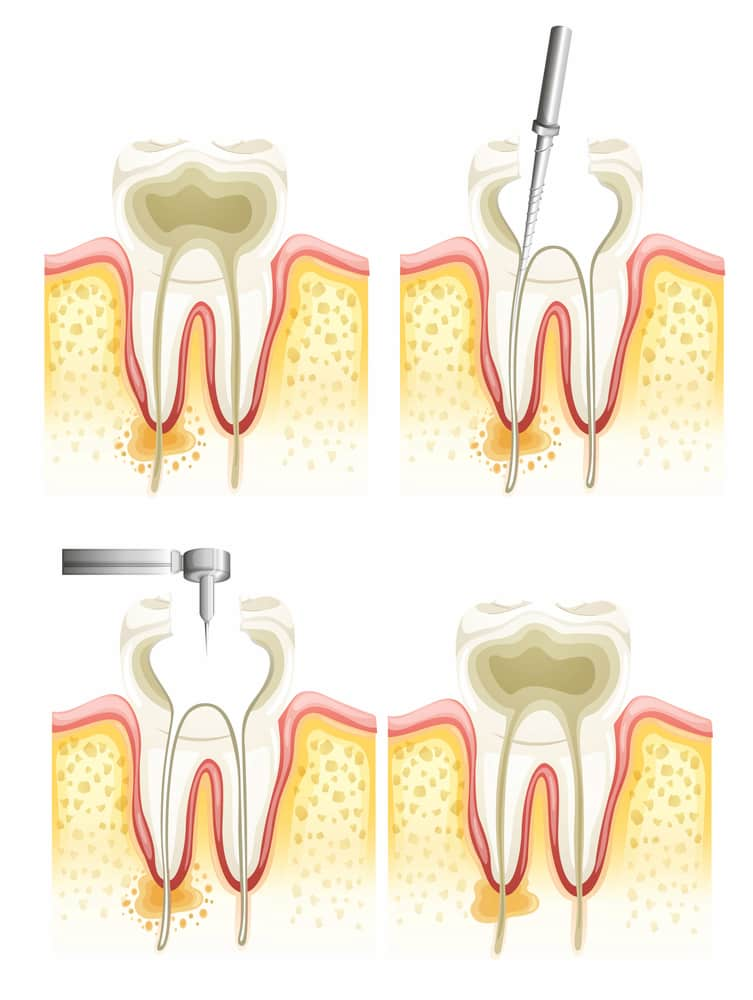- Request information without obligation
- 91 345 68 58
- | 623 197 355


DENTAL PRACTICE LIMITED TO ENDODONTICS
We firmly believe in specialization, this is the reason because we dedicate our clinical practice exclusively to Microscopic Endodontics and Dental Traumatology.
Appointment request:
CLÍNICA ENDO
about us
With more than 10 years of experience in the center of Madrid.
We are specialized in high complexity endodontic treatments, such those that were already initiated and present ledges or canal blockages, large calcifications, fractured files, perforations, immature apices, great anatomical complexities…
Dr. José María Aranguren Cangas
Elected President of the Spanish Association of Endodontics.
Director of the Postgraduate program in Microscopic Endodontics and Apical Surgery at Rey Juan Carlos University.
Professor at the International Dental Institute (Palm Beach, Fl. United States).
Master in Endodontics, Southern Mississippi University (USM).
Dr. César de Gregorio González
Deputy Director of the Postgraduate program in Microscopic Endodontics and Apical Surgery at Rey Juan Carlos University (Madrid, Spain).
Affiliate Professor. Department of Endodontics. University of Washington (Seattle, WA. United States).
Official Master in Advanced Endodontics. European University of Madrid.
EXPERIENCE, TECHNOLOGY AND EXCELLENCE
Endodontic Center in Madrid
What is a root canal treatment?

It aims to remove inflamed or infected pulp tissue from a tooth. This pulp tissue is found inside the teeth and contains nerve endings and blood vessels.
The most frequent cause of pulp involvement and therefore of the need to perform a root canal, is the existence of cavities, although there are other factors that can cause inflammation or injury to the pulp:
- Dental Trauma.
- Abrasion and wear of teeth in bruxist patients.
- The presence of deep restorations (fillings), etc.
Frequently asked questions in a root canal treatment

During the treatment, in addition to removing the affected pulp tissue, the canals in which the pulp is found are cleaned and disinfected. After a complete disinfection of this space, a hermetic seal of these spaces will be made with completely biocompatible materials. So the TOOTH IS PRESERVED and its functionality, both aesthetic and chewing, are preserved.
Endodontics is a COMPLETELY PAINLESS treatment.
It is performed under local anesthesia. In the case of acute pain or infection (abscesses, etc.) before the appointment, contact us in case a medication is necessary before the treatment, in order to improve the symptoms and allow the treatment to be carried out in the most comfortable way possible.
Endodontics is a highly predictable treatment, with a success rate greater than 95% (1).
The new technologies introduced in recent years, as well as the use of the MICROSCOPE, have made it possible to place its success at that level. Therefore, as long as a natural tooth can be maintained, this is the ideal option. Since there is no material that perfectly replaces our own teeth.
(1) A prospective study of the factors affecting outcomes of non-surgical root canal treatment: part 2: tooth survival. Y.-L. Ng, V. Mann & K. Gulabivala. Int Endod J 2011; 44;610–625.
As long as a tooth can be rebuilt after a cavity or dental trauma, SAVING the tooth is the best option. Although dental implants are great options when a tooth has to be extracted, they are not indicated when the tooth can be maintained, since they are not capable of reproducing all the functions of a natural tooth.
For example, teeth have a ligament around them that exerts a CUSHIONING action when we chew. By keeping our teeth, balance is maintained during chewing. This cushioning is not provided by dental implants.
When we keep a tooth, WE ALSO MAINTAIN THE BONE SURROUNDING IT and this is a unique property of our teeth.
The success rate of a root canal is exactly identical to that of an implant (2). This is why as long as a tooth can be maintained, this is the best option.
In addition, a recent study has shown that patients treated with root canals have an excellent quality of life after their treatments, without presenting discomfort when chewing in the successive controls performed (3)
(2) Comparison of Success of Implants versus Endodontically Treated Teeth. James Porter Hannahan and Paul Duncan Eleazer. J Endod 2008;34:1302–1305
(3) Quality of Life of Endodontically Treated versus Implant Treated Patients: A University-based Qualitative Research Study. Dustin L. Gatten, Christine A. Riedy, Sul Ki Hong, James D. Johnson and Nestor Cohenca. J Endod 2011;37:903–909.
The endodontist is specialized in those treatments aiming the control of the inflammation or infectious process inside a tooth, thereby maintaining the natural tooth and its functions: aesthetic, phonetic and chewing, among others.
An endodontist has specific training in endodontics (such as a Master’s degree lasting 2 to 3 years after completing their dental studies) and is exclusively dedicated to their specialty. That is why he also has more experience and is used to treating very difficult cases. Recent studies (4) have shown that endodontists carry out more exhaustive and up-to-date protocols during their treatments than other professionals who only dedicate a percentage of their time to endodontics and have not undergone specific training in endodontics. This does not mean that a dentist who does not exclusively perform endodontic treatments is not capable of performing a good treatment, but that especially in complex cases, the endodontist, due to his training, resources and experience, is capable of applying the most appropriate protocols and techniques. According to the most recent studies and research.
(4) Differences on disinfection protocols between general dentists and endodontists on root canal treatments: A web-based survey. De Gregorio C, Arias A, Navarrete N, Cisneros R & Cohenca N. Journal of the American Dental Association. Volume 146 , Issue 7 , 536 – 543.
